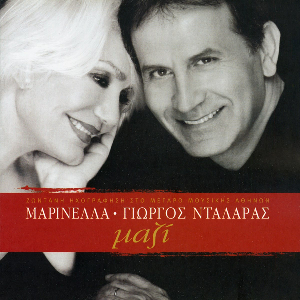The acute accent, ◌́, is a diacritic used in many modern written languages with alphabets based on the Latin, Cyrillic, and Greek scripts. For the most commonly encountered uses of the accent in the Latin and Greek alphabets, precomposed characters are available.

PAOK, commonly known as A.C. PAOK, is a major multi-sports club based in Thessaloniki, Macedonia, Greece. The club has several departments, including football, basketball, volleyball, handball, water polo, swimming, wrestling, ice hockey, and weightlifting. P.A.O.K was founded in April 1926. Because of its crest, it is also known as the "Double-Headed Eagle of the North", in contrast with AEK, the "Double-Headed Eagle of the South". They are one of the most popular Greek sports-clubs with many fans all over the country, and also among the Greek diaspora.
In music and prosody, arsis and thesis are respectively the stronger and weaker parts of a musical measure or poetic foot. However, because of contradictions in the original definitions, writers use these words in different ways. In music, arsis is an unaccented note (upbeat), while the thesis is the downbeat. However, in discussions of Latin and modern poetry the word arsis is generally used to mean the stressed syllable of the foot, that is, the ictus.
The grammar of Modern Greek, as spoken in present-day Greece and Cyprus, is essentially that of Demotic Greek, but it has also assimilated certain elements of Katharevousa, the archaic, learned variety of Greek imitating Classical Greek forms, which used to be the official language of Greece through much of the 19th and 20th centuries. Modern Greek grammar has preserved many features of Ancient Greek, but has also undergone changes in a similar direction as many other modern Indo-European languages, from more synthetic to more analytic structures.
The grave accent is a diacritical mark used to varying degrees in French, Dutch, Portuguese, Italian and many other western European languages, as well as for a few unusual uses in English. It is also used in other languages using the Latin alphabet, such as Mohawk and Yoruba, and with non-Latin writing systems such as the Greek and Cyrillic alphabets and the Bopomofo or Zhuyin Fuhao semi-syllabary. It has no single meaning, but can indicate pitch, stress, or other features.

Giorgos Zampetas was a Greek bouzouki musician. He was born in Athens, where he also died, but his origins were from the island of Kythnos.
Christos Xenofontos is a Cypriot former professional soccer player, who played as a striker and midfielder for AEK Larnaca, Othellos Athienou FC, and the Cyprus national football team.

Marinella & Antonis Remos – Live is the name of a live album by Greek singers Marinella and Antonis Remos. It is their first joint live album, was recorded at the Athens Arena and was released in December 2007 by Sony BMG Greece and Minos EMI. The album went Platinum selling over 30,000 units.

Me varka… to tragoudi is the name of a live album by popular Greek singer Marinella. The concert was recorded at the Odeon of Herodes Atticus in Athens, on September 18, 1999. It was released on November 20, 1999 in Greece and Cyprus by BMG Greece and it went platinum seven months after its release, selling over 50,000 units.

Mazi is the name of a live Greek album by singers Marinella and George Dalaras. The concert was recorded at the Athens Concert Hall in November 2002. It was released in the 18th of March, 2003 in Greece by Minos EMI and it went Platinum selling over 40,000 units.
Xylina Spathia were a popular Greek band from Thessaloniki, distinguished by their special and personal sound, which was unprecedented for the Greek music of the era.

Stauros is a Greek word for a stake or an implement of capital punishment. The Greek New Testament uses the word stauros for the instrument of Jesus' crucifixion, and it is generally translated pillar, tree in Christian contexts. This article covers the use of the word for other contexts.
In Ancient Greek grammar, a perispomenon (περισπώμενον) is a word with a high-low pitch contour on the last syllable, indicated in writing by a tilde diacritic or an inverted breve accent mark in native transcriptions with the Greek alphabet, or by a circumflex accent mark in transcriptions with the Latin alphabet. A properispomenon has the same kind of accent, but on the penultimate syllable.
In poetic meter, diaeresis has two meanings: the separate pronunciation of the two vowels in a diphthong for the sake of meter, and a division between feet that corresponds to the division between words.
The first season of the Greek Cypriot reality talent show The Voice of Greece premiered on January 10, 2014, on ANT1. Based on the reality singing competition The Voice of Holland, the series was created by Dutch television producer John de Mol. It is part of an international series.
Litsa Diamanti is a Greek laïko singer who became famous in the 1960s and 1970s. She has been described as the "child-wonder of the Sixties decade and the absolute diva of metapolitefsi." Her hits have been described as "all-time classics."

Afti Einai I Diafora Mas is the eleventh studio album by Greek singer Despina Vandi. It was released on 6 October 2016 under the label Heaven Music and soon certified gold, selling over 6,000 units. The cover of the album was published by Heaven Music's webpage on 28 September. Videos and audio samples of the songs published on that webpage from 16 September to 6 October.
Stavros is a Greek name. It comes from σταυρóς, the Christian cross, but is distinguished from it by having the accent on the first syllable rather than the second.. The word root comes from the verb ἵστημι which means "I make something stand, I stop".
Descriptions in antiquity of the execution cross, whether by Christians or non-Christians, present the instrument ordinarily used in putting people to death by crucifixion as composed of two wooden pieces. Whether the two pieces of timber of the normal execution cross were permanently conjoined or were merely put together for the purpose of the execution is not stated.
The diaeresis is a diacritical mark used to indicate the separation of two distinct vowels in adjacent syllables when an instance of diaeresis occurs, so as to distinguish from a digraph or diphthong.






